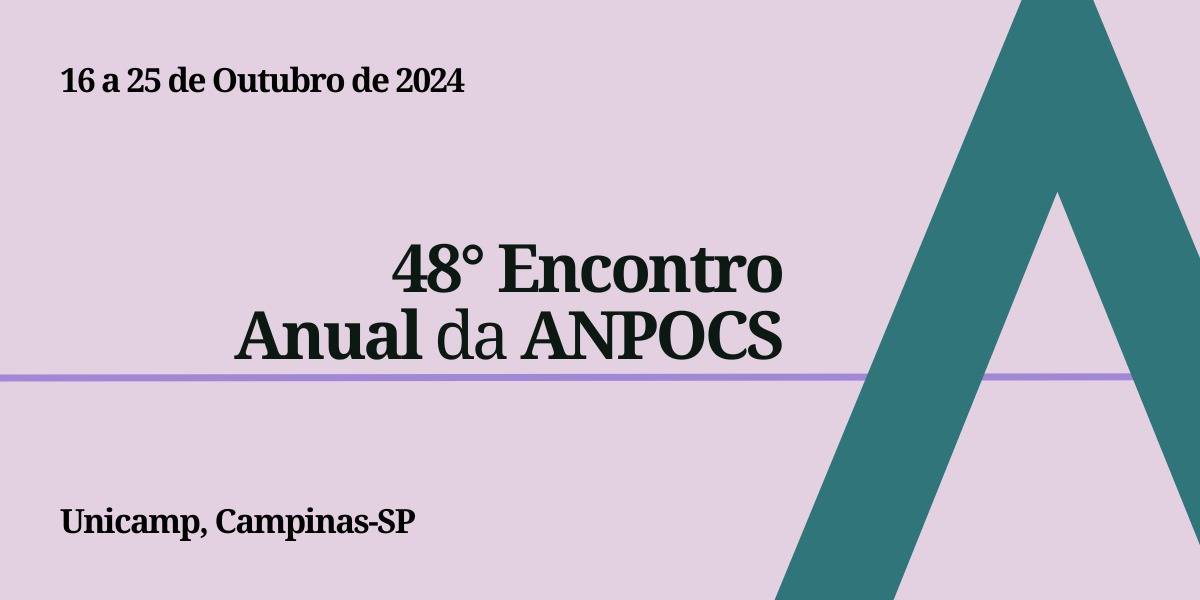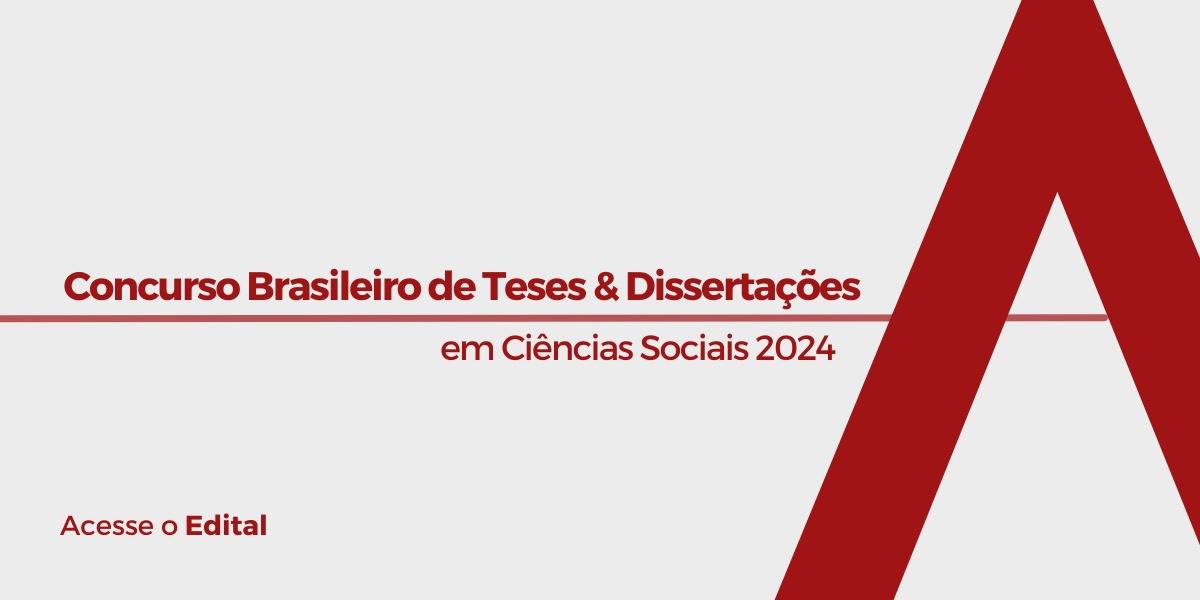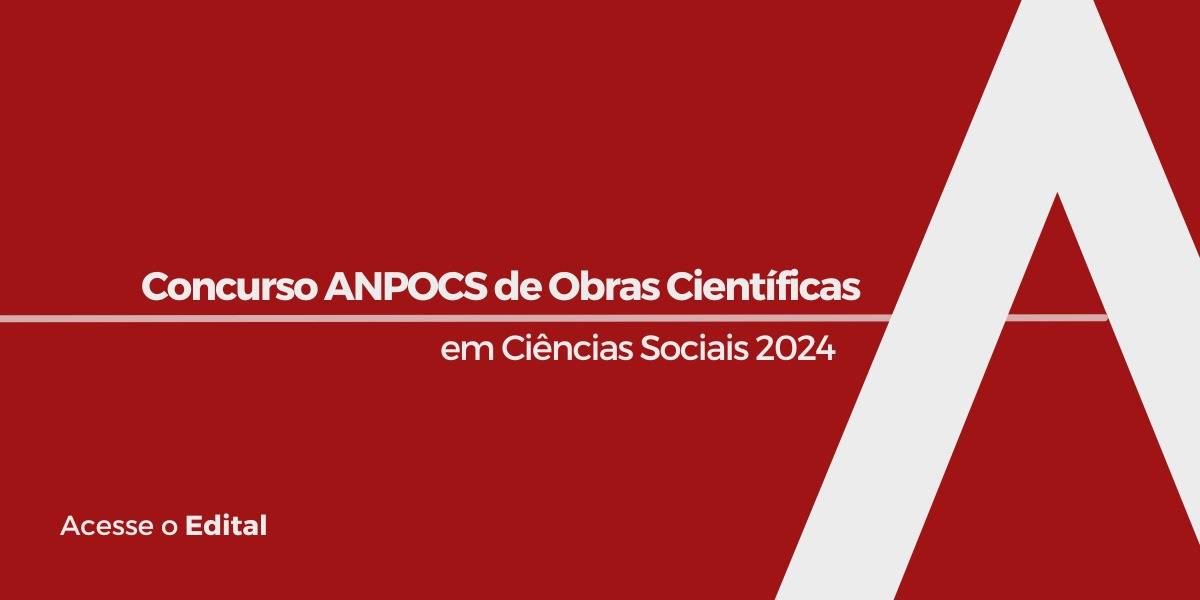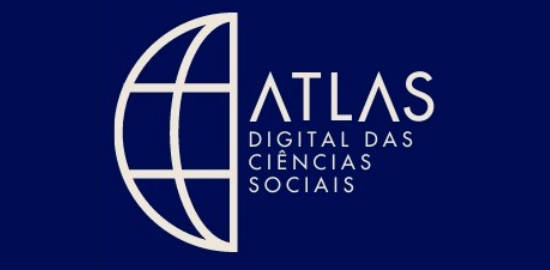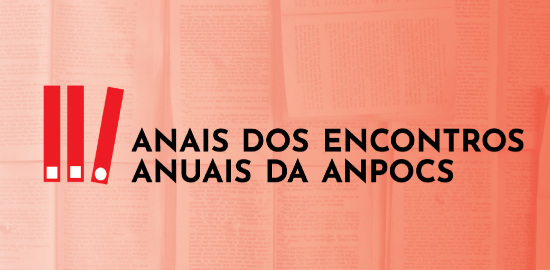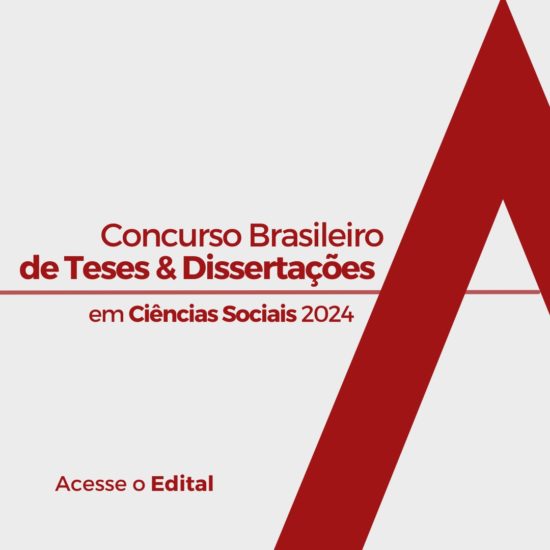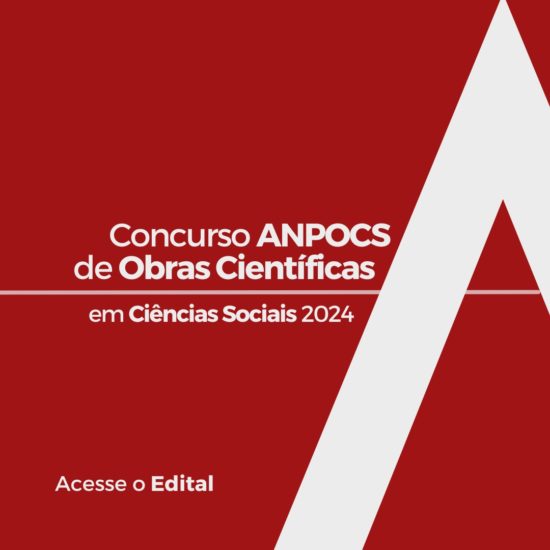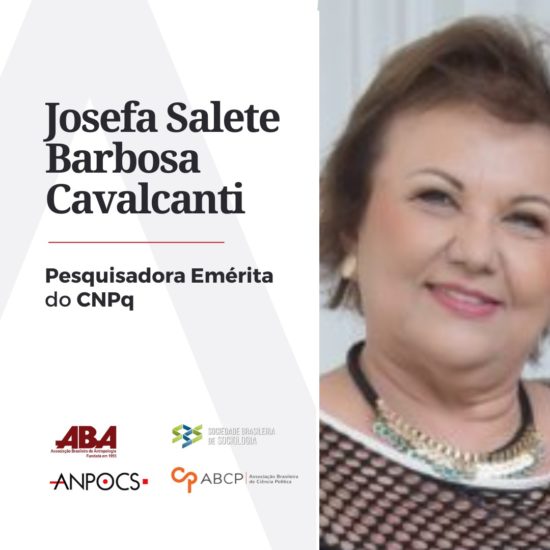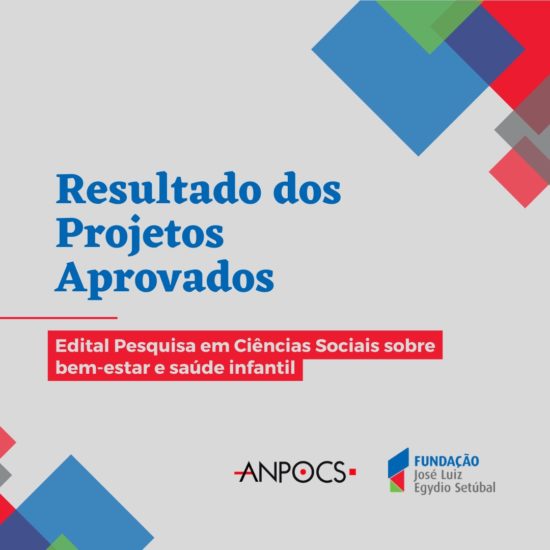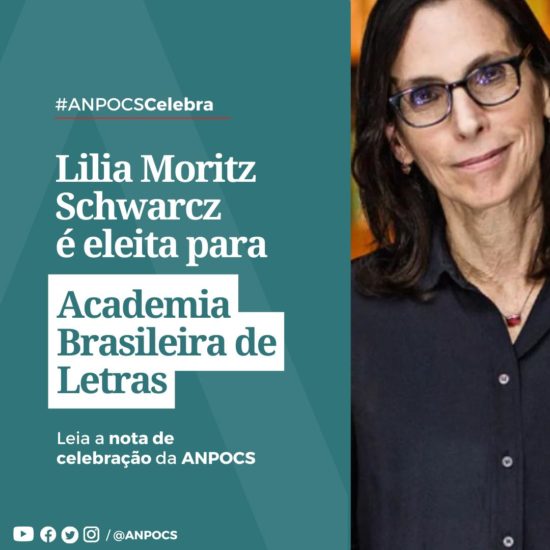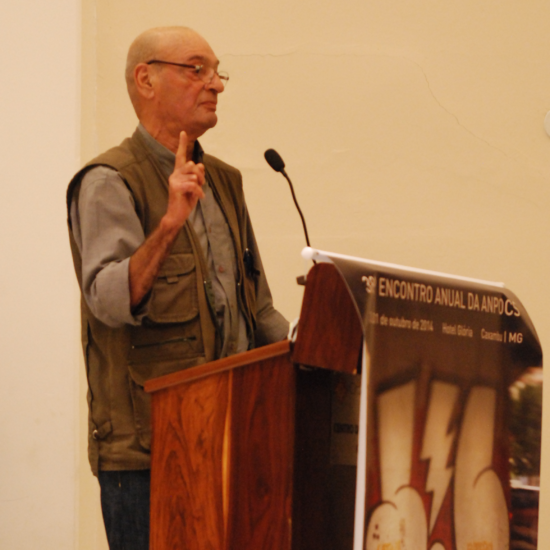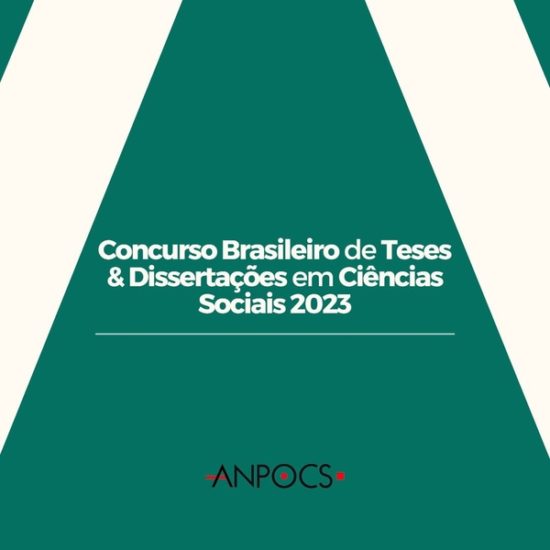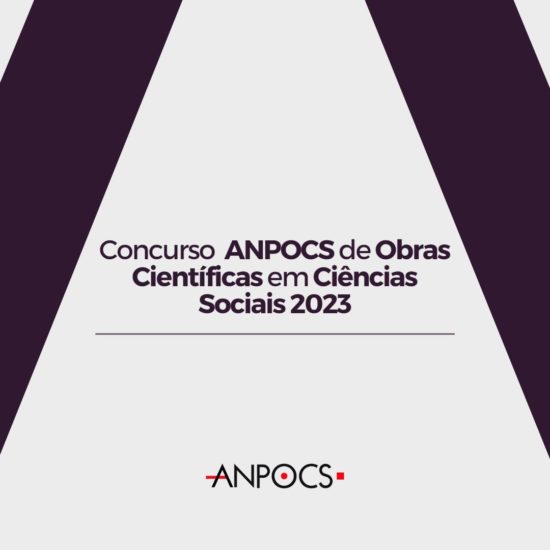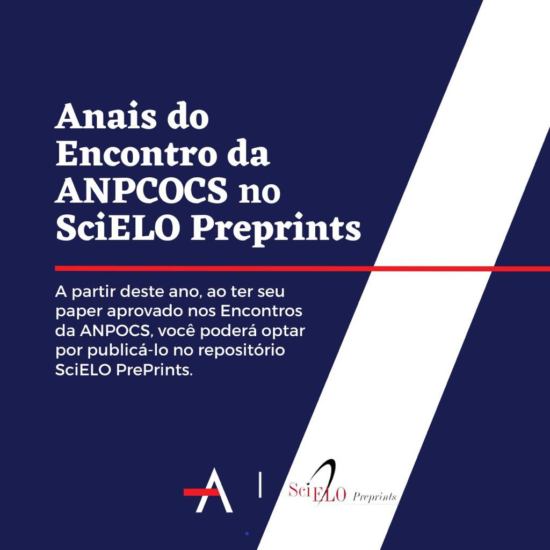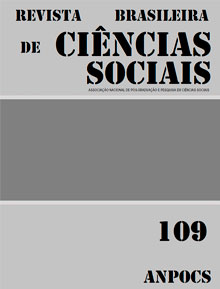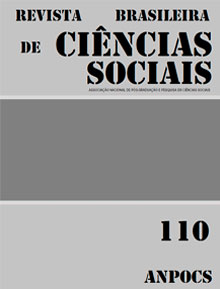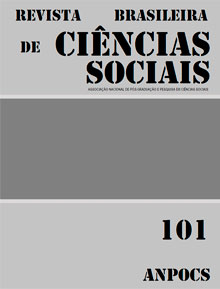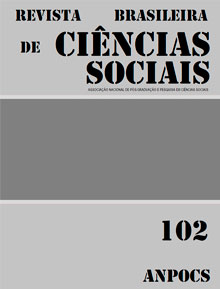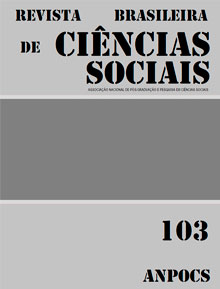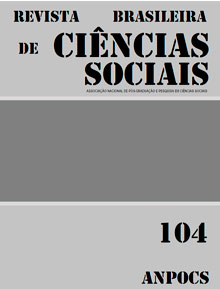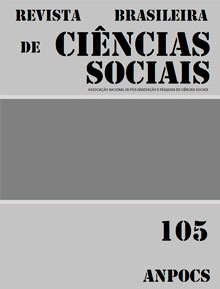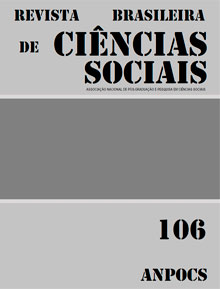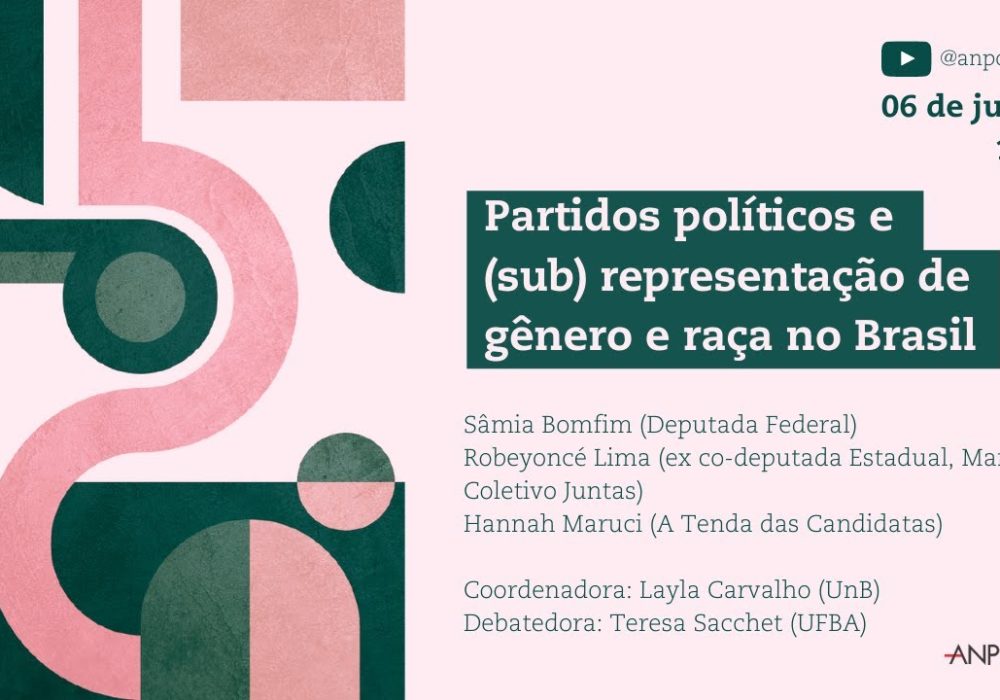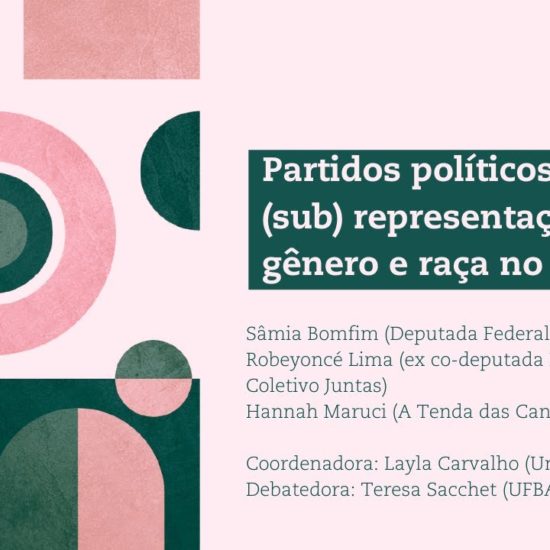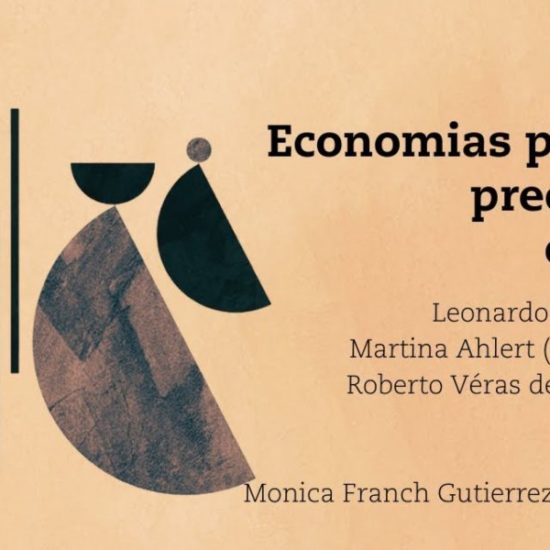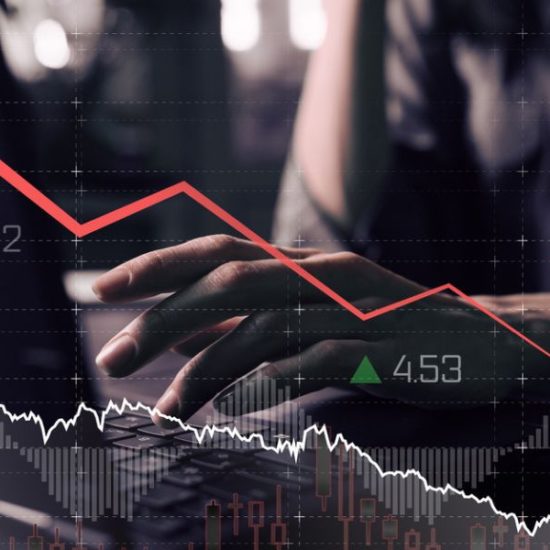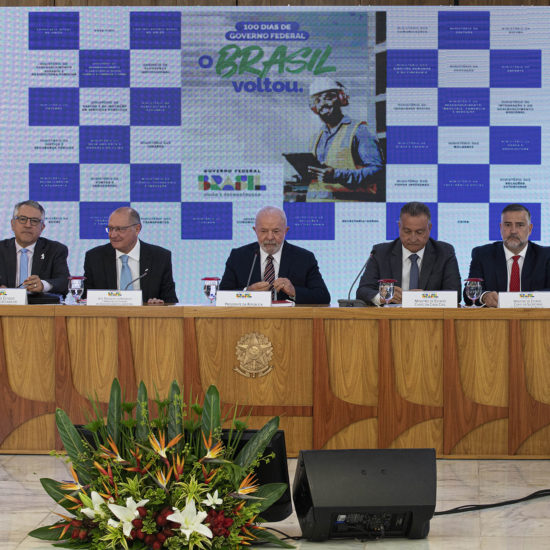Notícias
Concurso de Teses e Dissertações
Inscrições prorrogadas até o dia 24/04 para o Concurso ANPOCS de Teses e Dissertações edição 2024. (mais…)
Concurso Brasileiro ANPOCS de Obras
Inscrições abertas para o edital 2024 do Concurso ANPOCS de Obras Científicas. (mais…)
Pesquisadora Emérita do CNPq
ABA, ABCP, ANPOCS e SBS saúdam a profa. Josefa Salete Barbosa Cavalcanti pelo título de Pesquisadora Emérita do CNPq. (mais…)
Edital bem-estar e saúde infantil
Confira o resultado da chamada ANPOCS - FJLES sobre bem-estar e saúde infantil (mais…)
Lilia Moritz Schwarcz para Academia
É com imensa alegria que a ANPOCS celebra a eleição da professora Lilia Moritz Schwarcz para Academia Brasileira de Letras (ABL). (mais…)
Diretrizes – Ética na Pesquisa
Confira a versão final das “Diretrizes para a ética na pesquisa e a integridade científica”, revisado após a análise das contribuições recebidas durante consulta pública (de 13 de março a...
Nota de pesar: Luiz Werneck
Falecimento do ex-presidente da ANPOCS, Prof. Luiz Werneck Vianna (mais…)
Resultado do Concurso de Teses
Confira as teses e dissertações vencedoras do Concurso Anpocs de Teses e Dissertações 2023. (mais…)
Concurso Brasileiro ANPOCS de Obras
RESULTADO 2023 OBRA VENCEDORA A política no banco dos réus. A Operação Lava Jato e a erosão da democracia no Brasil Autor: Fábio Kerche & Marjorie Marona Edito: Autêntica...
Anais dos Encontros no SciELO
Anais dos Encontros Anuais da ANPOCS no SciELO Preprints. Entenda o que é um PrePrint e os benefícios da submissão. (mais…)
Revista Brasileira de Ciências Sociais
“As articulações franco-brasileiras na formação da sociologia do trabalho no Brasil (1950 – 1960)” e outros assuntos.
“35 anos de RBCS: mudanças e desafios”, “Usos da antropofagia: canibalismo caleidoscópico” e outros assuntos.
“The Politics Of The Proper Name: Dilemmas Of Representation In The Social Sciences” e outros assuntos.
“A verdade da Polícia como verdade jurídica: narrativas do tráfico de drogas no sistema de Justiça” e outros assuntos.
“Economia da Solidariedade e caminhos de trabalho: uma retrospectiva a partir de dados nacionais” e outros assuntos.
“O Juiz Constitucional me representa? O Supremo Tribunal Federal e a representação argumentativa” e outros assuntos. Editorial · Reduzindo
“O conflito na Serra do Gandarela: uma análise de sistemas deliberativos” e outros assuntos.
“A guerra como modo de governo em favelas do Rio de Janeiro” e outros assuntos.

